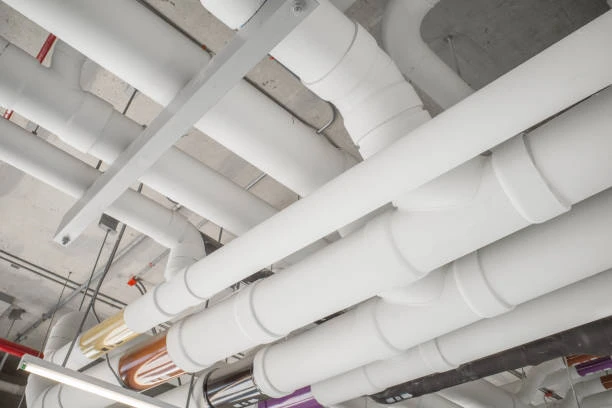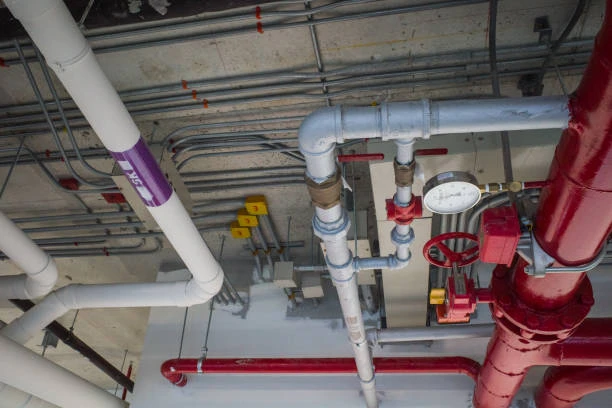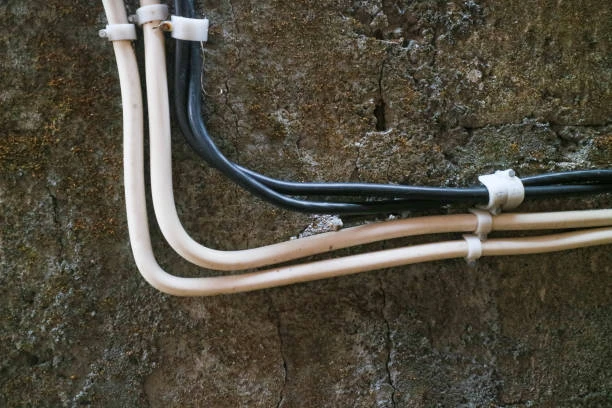Introduction
Efficient flow control is vital in water treatment plants where every drop counts. From filtration units to chemical dosing and waste discharge systems, consistent and controlled water movement ensures operational efficiency, system safety, and compliance with environmental standards. One essential yet often underestimated component in this process is the copper ball valve. While most commonly associated with plumbing systems such as the flush valve for toilet wc , copper ball valves also play a critical role in industrial-scale water treatment. Their robust construction, excellent sealing, and ease of operation make them ideal for precise flow regulation in complex systems. This article explores the significance, structure, usage, and advantages of copper ball valves in water treatment applications.
Frequently Asked Questions (FAQ)
1. What is a flush valve for toilet WC?
A flush valve for a toilet WC is a device that releases water rapidly from a cistern to flush the bowl. It can be manual or automatic and includes components like sealing gaskets and actuation handles.
2. Are copper ball valves used in toilets?
Yes. Copper ball valves are often used in the inlet supply line to isolate the water flow to the cistern, allowing maintenance without shutting down the entire system.
3. How do copper ball valves help in water treatment plants?
They regulate and isolate water flow in various stages of treatment, such as sedimentation tanks, filter outlets, chemical mixing lines, and discharge points.
4. Are copper ball valves suitable for high-pressure systems?
Yes. Copper and brass ball valves are rated for high pressure, typically up to 600 psi, making them suitable for both domestic and industrial systems.
5. Do copper ball valves require frequent maintenance?
Not typically. They are low-maintenance due to their corrosion resistance and durable internal components, especially when installed correctly and used under recommended conditions.
What Is a Copper Ball Valve? Features and Benefits
A copper ball valve is a quarter-turn valve used to start, stop, or regulate fluid flow. Inside the valve body is a spherical ball with a bore. When aligned with the pipe, fluid passes freely; when turned 90 degrees, the flow is blocked.
Key Features:
Material Strength: Made of copper alloy, usually brass or bronze, offering high corrosion resistance
High Flow Efficiency: Full-port designs allow unrestricted water flow, reducing energy loss
Quick Operation: Quarter-turn handles enable fast open/close action
Reliable Sealing: PTFE or reinforced rubber seals minimise leakage
Pressure Tolerance: Suitable for high-pressure lines in treatment plants and plumbing systems
Versatility: Applicable in potable water, greywater, sewage, and chemical lines
These characteristics make copper ball valves an indispensable component not just in household fixtures like flush valve for toilet WC, but also in large-scale municipal and industrial water management systems.
Applications and Use Cases
Copper ball valves are widely used in both residential and industrial water systems. Their most common applications include:
In Residential and Commercial Buildings:
Water supply isolation valves for toilets and cisterns
Control valves before or after a flush valve for toilet WC
Hot and cold-water line shut-off points
Maintenance isolation valves for bathroom and kitchen fittings
In Water Treatment Plants:
Inlet and outlet valves for sedimentation tanks
Flow regulators in sand or membrane filtration units
Control valves in chemical injection and dosing lines
Drain and backflush control valves
Emergency shut-off for maintenance and safety compliance
These applications demonstrate the valve’s flexibility across pressure levels, fluid types, and installation environments.
Buying Guide: What to Look for When Choosing a Copper Ball Valve
Purchasing the right valve for a specific application requires attention to quality, certification, and compatibility. Here are the top factors to consider:
1. Material and Alloy Quality
Look for valves made from DZR brass (dezincification-resistant) or lead-free copper alloys. These materials are crucial for applications involving potable water and harsh environments.
2. Valve Size and Flow Type
Choose between full-port and reduced-port based on flow requirement. Full-port is preferred for minimal pressure loss, especially in high-flow systems.
3. Sealing and Handle Design
PTFE seals offer excellent durability. Select a valve with an ergonomic or lockable handle for safety in public or industrial settings.
4. Surface Finish and Colour
Many copper ball valves have a natural brass or chrome-plated finish. A good finish improves corrosion resistance and aesthetics, especially in visible installations.
5. Certifications
Look for ISO, EN, or ASTM certifications. This ensures the valve complies with performance and safety standards, especially for potable water and chemical systems.
Installation Tips for Copper Ball Valves
A proper installation ensures long service life and effective operation. Follow these practical guidelines:
Clean all pipes and fittings before connection to prevent debris from damaging the valve
Apply approved sealing compound or PTFE tape to threaded connections
Do not overtighten, as this can cause cracking or thread damage
Ensure correct valve orientation (if marked with a flow direction)
Use appropriate tools, such as spanners or pipe wrenches, to secure connections
Check for leaks after installation by slowly pressurising the system
Test the valve handle for smooth operation before putting the system into full use
For systems like the flush valve for toilet WC, a ball valve upstream allows quick shut-off for maintenance or emergencies.
Copper Ball Valves vs Plastic Valves: A Comparison
| Feature | Copper Ball Valve | Plastic Valve (PVC/ABS/PP) |
|---|---|---|
| Durability | Very High – 10–20 years lifespan | Moderate – Can degrade under UV or stress |
| Temperature Resistance | High – up to 120°C | Lower – up to 60°C |
| Pressure Resistance | Excellent – up to 600 psi | Limited – up to 150 psi |
| Corrosion Resistance | Excellent – especially in DZR brass | Good – but varies by plastic type |
| Weight | Heavier – robust feel | Lightweight – easier for temporary setups |
| Maintenance Needs | Low – long intervals between servicing | Moderate – more sensitive to wear/UV |
| Cost | Higher upfront cost | Lower cost – suitable for budget systems |
| Best Use Case | Long-term, high-pressure water systems | Temporary, low-pressure or non-potable lines |
For critical systems like water treatment plants or the water inlet to a flush valve for toilet WC, copper ball valves are typically preferred due to their robustness and reliability.
Conclusion
In both residential plumbing and complex industrial operations, the ability to regulate and isolate water flow is vital. Copper ball valves, thanks to their precise operation, corrosion resistance, and robust construction, are a cornerstone of safe and efficient water management.
From controlling chemical flow in a treatment plant to managing water supply before a flush valve for toilet WC, copper ball valves deliver reliability where it matters most. Choosing the right valve and installing it correctly ensures not only system longevity but also operational peace of mind.
Connect
IFAN is a trusted manufacturer from China with over 30 years of experience in producing copper fittings, plastic pipes, and advanced valve systems. We understand the technical needs of both industrial water treatment facilities and everyday residential users.
If you are interested in IFAN copper ball valves, copper fittings, plastic pipes, or other flush valve for toilet WC components, we’re here to help.
- For more information,pls visit our webside https://waterpipefitting.com/
Pls Mailto: [email protected]
Whatsapp: +86 15088288323
We aim to reply to every query within 24 hours. For urgent requests or ongoing projects, you can call us directly.
IFAN Product International Standards
IFAN’s products strictly follow a wide range of globally recognised standards, ensuring our solutions meet local and international requirements:
ISO 15874, EN 15874, ASTM F2389, DIN 8077/8078, GB/T 18742, NBR 15884
ISO 15494, EN ISO 15494, GB/T 19472, NBR 15494, ASTM 2846
DIN 8079/8080, ASTM F441/F441M SCH80, DIN 8061/8062, GB/T 10002
AS/NZS 1477, CSA B137.6, NSF/ANSI 14, BS 3505, BS 4346
ASTM D1785 SCH40/80, ASTM D2241, D2665, D2729, ISO 1452, JIS K6741
With full adherence to these standards, IFAN ensures consistency, performance, and safety across all product categories.














Recent Comments